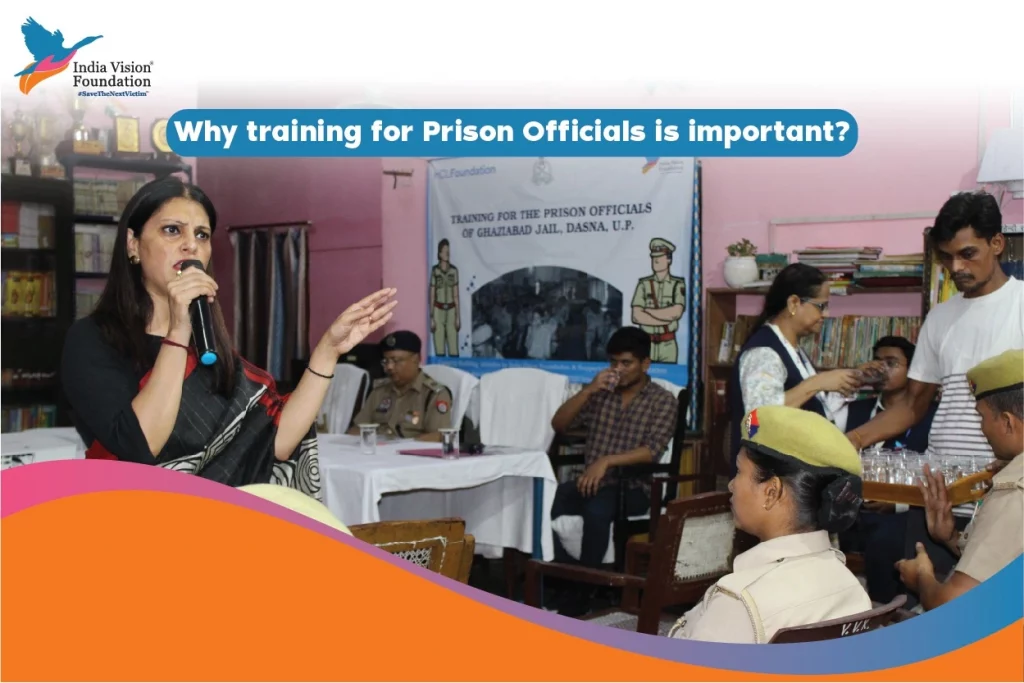Why Training for Prison Officials is Crucial
In the vast and complex world of criminal justice, there’s a silent but significant group of individuals who play a pivotal role in maintaining order and facilitating rehabilitation: prison officials.
These dedicated men and women work tirelessly behind the walls of correctional facilities, facing unique challenges and responsibilities. While it’s easy to overlook the importance of their role, the truth is, training for prison officials is essential for numerous reasons.
Understanding Prison Reforms
Prison systems are constantly evolving, driven by changes in legislation, societal attitudes, and our understanding of human behaviour. Training programs for prison officials serve as a platform to educate them about these ongoing reforms. By staying updated on the latest policies and practices, officials can effectively implement changes within their institutions, ensuring that they remain in line with the broader goals of rehabilitation and reintegration.
Standardising Correctional Programs
Consistency is key within the era of corrections. Training equips prison officials with the necessary knowledge and skills to standardise correctional programs across different facilities. Whether it’s implementing educational initiatives, vocational training, or mental health services, a standardised approach ensures that all inmates have equal access to opportunities for growth and rehabilitation.
Sustaining Programs for Long-Term Impact
Implementing programs is one thing; sustaining them is another. Training programs for prison officials go beyond mere implementation by focusing on sustainability.
Officials learn strategies to overcome challenges, engage stakeholders, and secure resources for the long-term success of correctional programs. This ensures that initiatives designed to reduce recidivism and promote positive change continue to thrive even amidst changing circumstances.
Enhancing Capacities for Complex Issues
Working in a prison environment is not without its difficulties. From managing conflicts among inmates to addressing mental health crises, prison officials encounter a myriad of complex issues on a daily basis. Training equips them with the skills and knowledge needed to navigate these challenges effectively. Whether it’s conflict resolution techniques, de-escalation strategies, or understanding trauma-informed care, ongoing training enhances the capacities of officials to handle diverse situations with professionalism and empathy.
Ensuring Well-being at Work
The well-being of prison officials is paramount. Working in a high-stress environment can take a toll on their mental and emotional health. Training programs provide officials with tools to manage stress, foster resilience, and maintain a healthy work-life balance. By prioritising the well-being of staff, prisons can cultivate a positive work culture where employees feel supported and motivated to fulfil their duties effectively.
The Hybrid Mode of Training
In today’s digital age, training for prison officials has evolved to accommodate various learning preferences and logistical challenges. Hybrid training models, combining in-person sessions with virtual components, offer flexibility and accessibility. This ensures that officials can access training regardless of their location or scheduling constraints, maximising participation and engagement.
Outcomes of the Program
The impact of training for prison officials extends far beyond the confines of the classroom. Here are some tangible outcomes that can result from investing in comprehensive training programs:
- Achieving Work-Life Balance: Equipping officials with strategies to manage their time effectively and prioritise self-care fosters a healthier work-life balance, reducing burnout and turnover
- Improved Time Management: By honing time management skills, officials can optimise their workflow, ensuring that tasks are completed efficiently without compromising quality or
- Enhanced Stress Coping Skills: Stress is an inevitable aspect of working in a prison environment. Training empowers officials with coping mechanisms to navigate stressors effectively, maintaining their well-being and
In conclusion, training for prison officials is not just beneficial; it’s essential for the effective functioning of correctional institutions.
By investing in the professional development of these dedicated individuals, we not only ensure the safety and security of prisons but also contribute to the broader goals of rehabilitation and societal reintegration.


